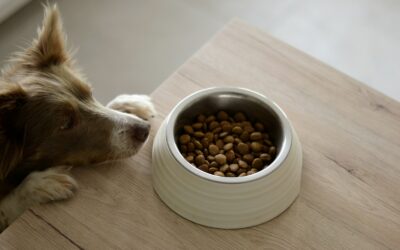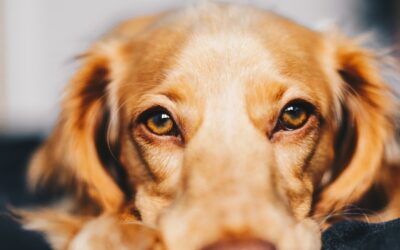Why does my dog lick me?
If you’re a dog owner, chances are you’ve experienced an enthusiastic lick from your furry friend. But have you ever wondered why dogs do this? Is it simply a sign of affection, or is there more to your dog’s licking behavior?
This blog dives into the reasons behind this quirky behavior, explains when licking might be a cause for concern, and offers practical tips for managing it. From understanding how dogs communicate to recognizing their emotional needs, you’ll gain valuable insights into your dog’s world.

Dog Licking Behavior
What is Dog Licking?
Dog licking is a natural and instinctive behavior that serves several purposes. From the moment they’re born, puppies lick their mother and littermates as a form of bonding and communication. This behavior carries into adulthood, where dogs use their tongues to explore the world, groom themselves, and express a variety of feelings.
While licking is often associated with affection, it can also signal underlying issues, such as anxiety or stress. Understanding the different reasons behind licking can help you better relate to your pup.

Reasons Why Dogs Lick
1. Affection and Bonding
One of the most common reasons dogs lick their owners is to express their love and loyalty. Licking is a way for your dog to bond with you, much like they might bond with their mother or pack. When your pup licks your face, hands, or other body parts, it’s often a sign of affection and comfort. However, some dogs tend to lick less than others, and this does not necessarily reflect their level of affection.
Most dog owners find licking endearing. However, if your dog is seeking attention or expressing submission through excessive licking, it’s essential to pay attention to the context. Are they licking when you return home? After meals? Understanding “why” will help you interpret their behavior more accurately.
Pro Tip: Remember, not all dogs lick to show affection. Some might display it through tail wagging or staying close to you instead.
2. Communication Tool
Dogs use licking as a method of communication. This behavior starts early in life, as young dogs often lick their mother’s lips to communicate their needs. For instance, your dog may lick you to indicate they’re hungry, thirsty, or in need of some playtime. By observing when and where your dog licks, you can identify their specific needs.
For example, if your pup licks your hand while looking at the treat jar, that’s their way of saying, “I’d like some snacks, please!” Recognizing these cues fosters a stronger connection between you and your furry companion.
Actionable Step: Next time your dog licks you, take a moment to observe their environment. Are they trying to communicate hunger, thirst, or boredom? Tailoring your response can reinforce positive behaviors.
3. Anxiety and Stress Relief
Licking can also serve as a self-soothing mechanism for stressed or anxious dogs. Similar to how humans might chew on their nails or fiddle with their hair, dogs may turn to licking as a repetitive action to calm themselves.
This type of licking, often categorized as compulsive behavior, might manifest after a stressful event like hearing loud fireworks or being left alone for extended periods.
What to Watch For: If your dog’s excessive licking leads to bald patches or seems compulsive, it’s worth consulting a veterinary behaviorist. Early intervention can help address underlying issues contributing to your dog’s excessive licking behavior.

When Dogs Lick Excessively
Obsessive Compulsive Disorder
Constant licking can sometimes indicate more serious concerns, such as a dog’s excessive licking behavior due to obsessive-compulsive disorder (OCD) or underlying medical conditions like allergies or gastrointestinal problems. If left unaddressed, this behavior can escalate, leading your dog to lick surfaces, objects, or even their own skin excessively.
- Talk to your vet if you notice your dog is constantly licking or if the behavior is paired with other signs, such as increased anxiety or changes in appetite.
- Your veterinarian may recommend certain medications, and behavior modification techniques, or refer you to a veterinary behaviorist for specialized care.
Remember: A sudden change in licking behavior can also indicate medical issues, so it’s crucial to act swiftly.
Safety and Hygiene Concerns
While many dogs lick their owners’ faces, it’s important to weigh the hygiene risks associated with a dog’s mouth. A dog’s mouth naturally contains bacteria. Though most are harmless to humans, licking an open wound or sensitive area could cause infections in rare cases.
For those with compromised immune systems, it’s wise to avoid close contact with a dog’s saliva. Washing your face and hands after being licked is an effective way to minimize risk.
Did You Know? Contrary to the myth, a dog’s saliva isn’t necessarily antiseptic—it’s just another way they interact with the world.
Is It Safe for Dogs to Lick My Face?
While it’s natural for dogs to lick their owners’ faces, it’s essential to consider the potential risks involved. Dogs’ mouths contain a variety of bacteria, including Capnocytophaga, which can be transmitted to humans through licking. However, the risk of infection is relatively low, and most people’s immune systems can handle the bacteria.
That being said, there are certain individuals who may be more susceptible to infection, such as those with compromised immune systems or open wounds. If you fall into one of these categories, it’s best to avoid letting your dog lick your face or take precautions to minimize the risk of infection.
Additionally, it’s worth noting that dogs can also transmit parasites, such as hookworms and roundworms, through their saliva. However, this is relatively rare and typically only occurs in dogs that are not regularly dewormed.
To minimize the risks associated with dog licking, it’s a good idea to:
- Wash your face regularly, especially after your dog has licked you.
- Avoid letting your dog lick your face if you have open wounds or a compromised immune system.
- Keep your dog’s vaccinations and deworming up to date.
- Practice good hygiene, such as washing your hands regularly.
Overall, while there are some potential risks associated with dog licking, they can be minimized with proper precautions and good hygiene. By being mindful of these factors, you can enjoy the affectionate behavior of your furry friend while keeping both of you safe and healthy.
How to Stop Problem Licking
Redirecting the Behavior
If your dog’s licking feels excessive or makes you uncomfortable, there are plenty of ways to manage it without using negative reinforcement:
- Ignore Attention-Seeking Behavior: If your dog licks to grab attention, deny it by stepping away or redirecting their attention with a toy. Reward them when they stop licking.
- Distract with Enrichment Toys: Offer a food puzzle or chew toy to channel their energy into a healthier outlet.
- Practice Trick Training: Teach your dog a fun trick, like “give paw” or “sit,” as an alternative to licking when they want to engage.
Pro Tip: Positive reinforcement is key! Celebrate behaviors that align with your expectations to help your pup learn quickly.
Top Toys and Treats to Help with Excessive Licking
Here is a list of some of the best toys and treats available, designed to engage your dog and help manage excessive licking behavior. Each of these products encourages mental stimulation and healthy chewing habits.
KONG Classic Dog Toy
The KONG Classic is great for mental and physical stimulation. It’s durable, bounces unpredictably, and can be filled with treats to keep your dog occupied.
Greenies Original Dental Treats
These dental treats not only help clean your dog’s teeth and freshen breath, but they also keep your dog busy and satisfied.
Nylabone Power Chew Textured Dog Chew
Designed for aggressive chewers, this chew toy can keep your dog entertained for hours while promoting good dental health.
Bully Sticks by Natural Farm
Bully sticks are long-lasting, all-natural treats that provide hours of chewing enjoyment for your dog.
Benebone Wishbone Dog Chew Toy
With its unique shape and flavor options, this chew toy is perfect for engaging your dog’s instincts and can reduce stress-related licking.
Lickimat Classic Buddy
The Lickimat is a fantastic tool for slowing down eating and enriching dogs‘ mealtime. Spread your dog’s favorite soft treat on the mat, and let them lick away.
Each of these products can be utilized as part of a comprehensive strategy to address excessive licking and promote a balanced, healthy lifestyle for your dog.
Should You Be Concerned?
Although licking is a natural instinctive behavior for many dogs, it’s essential to remain observant and intervene if your dog’s licking behavior becomes problematic. Whether it’s rooted in attention-seeking behavior, stress, or medical issues, identifying the underlying cause will ensure your dog’s well-being and lead to a healthier relationship.
For manageable solutions, consider consulting your vet or checking out specialized products like the Fi smart dog collar for tracking activity levels. If you live near places like Snouts & Stouts, their membership programs and expert staff can also help with behavior management.
Building Better Bonds with Your Pup
Licking behavior can reveal a lot about your dog’s emotional state, physical health, and communication style. Licking is also a way dogs groom themselves and their loved ones, reinforcing their bond. By understanding why your dog licks, you can foster a deeper connection and ensure they remain happy and healthy.
But remember, not all dogs lick, and every pup is unique in how they express themselves. With patience, positive reinforcement, and professional advice when necessary, you’ll create a bond built on trust and love.
Next Steps: Looking to bond with your furry friend even more? Try visiting an indoor dog park like Snouts & Stouts—a fun way to socialize and relax while your pup gets to play. Or set up a consultation with a veterinary behaviorist to better understand your dog’s unique quirks.

Conclusion | Why Does My Dog Lick Me?
In conclusion, dog licking is a natural and instinctive behavior that can serve a variety of purposes, including showing affection, seeking attention, and exploring their environment. While it’s not always possible to determine the exact reason why your dog is licking you, understanding the potential motivations behind this behavior can help you respond in a way that strengthens your bond with your dog.
By recognizing the signs of excessive licking and taking steps to address any underlying issues, you can help your dog feel more comfortable and secure. Additionally, by practicing good hygiene and taking precautions to minimize the risks associated with dog licking, you can enjoy the benefits of this behavior while keeping yourself and your dog safe.
Remember, every dog is unique, and what works for one dog may not work for another. By being patient, consistent, and responsive to your dog’s needs, you can build a strong and loving relationship that is based on mutual respect and trust.




